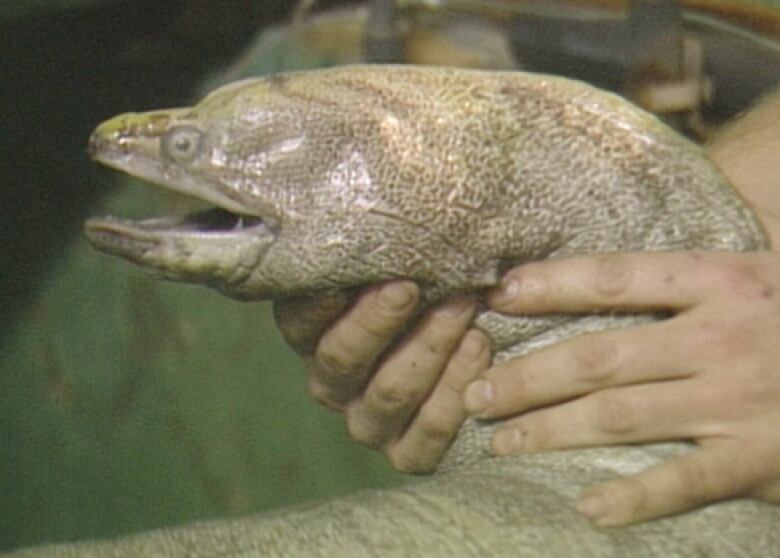Mystery Vancouver Aquarium beluga deaths bring back memories of previous poisoning
30 years ago someone poisoned 750 aquarium fish in a still-unsolved crime
As the Vancouver Aquarium investigates the mysterious deaths of two beluga whales in two weeks, it's leaving "no stone unturned," including the possibility, however remote, that the whales could have been poisoned.
CEO and president John Nightingale said Monday he knew of no precedent for such an act, but with no definitive cause of death, a recent break-in at another Aquarium facility and trolling and harassment of employees on social media, they had to consider it.
Whale poisoning may be without precedent, but animals at the Vancouver Aquarium have been killed by an intruder before.
Thirty years ago this week, someone broke in and poisoned the facility's entire tropical fish collection — hundreds of valuable fish, some considered rare and "irreplaceable," according to news stories from the time.
Despite a Vancouver police investigation, outpouring of donations from the public, and even a Vancouver Crimestoppers episode re-enacting the deed, the case remains unsolved.
750 fish killed
On Nov. 25, 1986, Vancouver Aquarium staff arrived at work to find a door pried open, murky water in their tropical tanks and the approximately 750 fish on that water system either dead, or dying.
Among the victims: a lion fish that had lived there 15 years, moray eels, and a young sawfish that was alone valued at up to $10,000 in 1986 dollars.

Aquarium staff told CBC News reporter Paul Heeney that whoever did it clearly had knowledge of the system, dumping a massive amount — 22 kilograms — of the algicide copper sulfate into the filtration system.
"I think there's no question it's a ... malicious act," said Stefani Hewlett of the Vancouver Aquarium in a November 1986 report.
"We feel a vulnerability that we have never felt before. It's just inconceivable that anyone out there would deliberately kill animals."
'Greatest setback to date'
Five months later, the Vancouver Crimestoppers program re-enacted the crime with a reward for tips, but news stories from the time suggest the crime was never solved. (Vancouver police this week were unable to pull such old files from storage by deadline.)
The aquarium received a massive influx of donations from B.C. and across Canada, eventually raising at least $200,000, according to news reports — more than double the cost of the lost fish, with groups pitching in for particular piscine projects.
"A group of doctors at St. Paul's Hospital naturally donated money for surgeon fish. A bevy of grandmothers banded together to adopt a school of royal grammas," wrote reporter Tim Harper in a Toronto Star feature story.
A new tropical display was unwrapped by Christmas.
Even now, on the Vancouver Aquarium's website, the facility notes the "unsolved attack" as "its greatest setback to date."

'360-degree review' of beluga deaths
While interesting, there's no real evidence that this decades-old act of sabbotage is seeing any kind of reprise in the deaths of the belugas.
The aquarium has contacted Vancouver police, but there is no formal investigation by the VPD, and "no evidence to suggest that the unfortunate demise of the beluga whales ... were as a result of a criminal act," said Const. Jason Doucette.
In the aquarium's own investigation, it will comb over security footage from the beluga tank "minute by minute," said Nightingale.
The "360-degree review" will also examine every beluga-related variable the aquarium team can find, dating back to Jan. 1 of this year, from water quality to the test results on each batch of squid the whales ate, he said.
Toxicology and other tests are also underway, with support from several universities in Canada and the U.S.
Speaking alongside his exhausted and heartbroken staff, Nightingale said though it is being considered, he doesn't think anyone would be so "astonishingly cruel" as to poison a whale.
"I just can't believe even the most strident activist who would want to see this aquarium closed would do that. I just can't believe that. And I'm going to continue to not believe that until I'm proven wrong."




